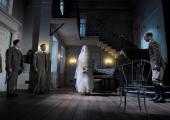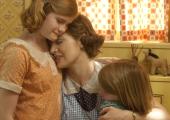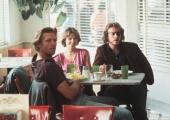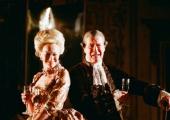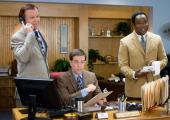Take This Waltz
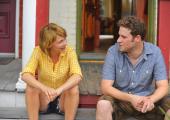
Sarah Polley directs Michelle Williams in a refreshing, bittersweet romance
The great Leonard Cohen has brought his trademark poetry and pain to a whole host of film and TV soundtracks: the cynical “Everybody Knows” accompanied the bump and grind of Atom Egoyan’s Exotica; the raggedly beautiful “Hallelujah” brought soul to Watchmen and best of all is his melancholic musical backdrop to Altman’s heartbreaking McCabe & Mrs. Miller. In fact we’ve already seen one film this year take its title from a Cohen song – A Thousand Kisses Deep.


